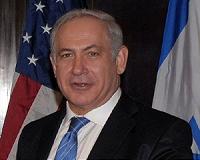 |
Algiers, Algeria (UPI) Apr 18, 2011 Algeria, a major oil and gas producer, appears to have ridden out the political upheaval gripping the Arab world, largely because the government has bought time by pledging economic and political concessions. Indeed, amid the widening cracks in Algerian society, the most immediate threat appears to be a worsening power struggle between President Abdelaziz Bouteflika and the military and a possible spillover of violence from neighboring Libya. That threat was heightened in recent days. On Saturday, jihadists of the Algerian-led al-Qaida in the Islamic Maghreb killed 13 soldiers in an ambush in the northern Kabylie region, their deadliest strike in months. Two days later, the military said AQIM killed six security personnel in two attacks in the Boumerdes and Bouira regions east of Algiers. The media put the death toll at 20. Weapons shipments from Libya, where state armories have been plundered in the fighting there, were intercepted along the border March 29 and April 6. If Algeria does erupt, its energy exports could be disrupted, pushing up prices. The country has oil reserves of 12.1 billion barrels and gas reserves of 159.1 trillion cubic feet. On Friday, Bouteflika, who lifted a 19-year state of emergency Feb. 24 in a bid to mollify protesters, announced a series of political reforms, including changes to the constitution and the electoral law to widen the role of political parties. He said the reforms would be adopted before national elections scheduled for May 2012. But his proposals got a frosty reception. The El Watan daily said they simply supported a system "which wants to keep things in hand while making it appear it is reforming -- which it is not." Protests erupted in Algeria Jan. 3 shortly after riots broke out in neighboring Tunisia, which resulted in President Zine el-Abidine Ben Ali being driven from power Jan. 14. A dozen Algerians set themselves on fire and others were killed by security forces in widespread riots over food prices and other social and economic grievances in a country where three-quarters of the population is under 30 and largely unemployed. But the wave of protests never became directed at bringing down Bouteflika's authoritarian regime, in the manner of the rulers of Tunisia and Egypt. Bouteflika contained the unrest by hiking food subsidies, offers of free land, doubling the salaries of state employees and ending the state of emergency. Also, the opposition's lack of cohesion was also a big factor in taking the sting out of the unrest. Protests remain localized and no organized national movement has yet coalesced. It is widely believed that Algerians are reluctant to engage in a nationwide uprising, like those in Tunisia and Egypt, because memories of the bloody civil war between Islamist militants and the government throughout the 1990s remain imprinted on the national psyche. Up to 200,000 people died in that conflict. The protests and strikes have increased in frequency over recent weeks but in general have been small-scale, underlining the lack a popular mobilization. The real rivalry for power in Algeria is between Bouteflika, 74, who was elected in April 1999 and is in his third five-year term, and Gen. Mohammed "Tewfik" Mediene, head of the Directorate of Intelligence and Security, known as the DRS. Bouteflika's political "clan" is centered in the northwest around the city of Tlemcen. Mediene's power base is in the ethnic Berber majority. The two men have been at odds for years. But their rivalry heated up in December 2009 when Mediene launched a major counter-corruption campaign that was directly primarily at Bouteflika's political allies. Their power struggle has emphasized fissures within the ruling alliance led by the National Liberation Front and the National Rally for Democracy, which has backed Bouteflika. "If one or both of these parties were to leave the coalition, it would substantially weaken Bouteflika's position," the global security consultancy Stratfor observed in a Sunday analysis. "The Libyan conflict represents a substantial deterioration in Algeria's security situation and raises the threat of terrorism and weapons proliferation among non-state groups looking to profit from the decay of Libyan power in the region." Indeed, Stratfor added, the Algerian regime "fears AQIM could fill the vacuum created if Libyan leader Moammar Gadhafi was deposed."
Share This Article With Planet Earth
Related Links
 Israel to move army commands to Negev
Israel to move army commands to NegevJerusalem (AFP) April 17, 2011 Israel's government on Sunday approved a plan to move key military installations to the Negev desert, in a bid to boost development in its arid south and free up valuable land in the centre. "Not to exaggerate its importance, but it brings to fruition a longstanding vision of moving IDF (Israel Defence Forces) command centres to the Negev," Prime Minister Benjamin Netanyahu said as he opened ... read more |
|
| The content herein, unless otherwise known to be public domain, are Copyright 1995-2010 - SpaceDaily. AFP and UPI Wire Stories are copyright Agence France-Presse and United Press International. ESA Portal Reports are copyright European Space Agency. All NASA sourced material is public domain. Additional copyrights may apply in whole or part to other bona fide parties. Advertising does not imply endorsement,agreement or approval of any opinions, statements or information provided by SpaceDaily on any Web page published or hosted by SpaceDaily. Privacy Statement |